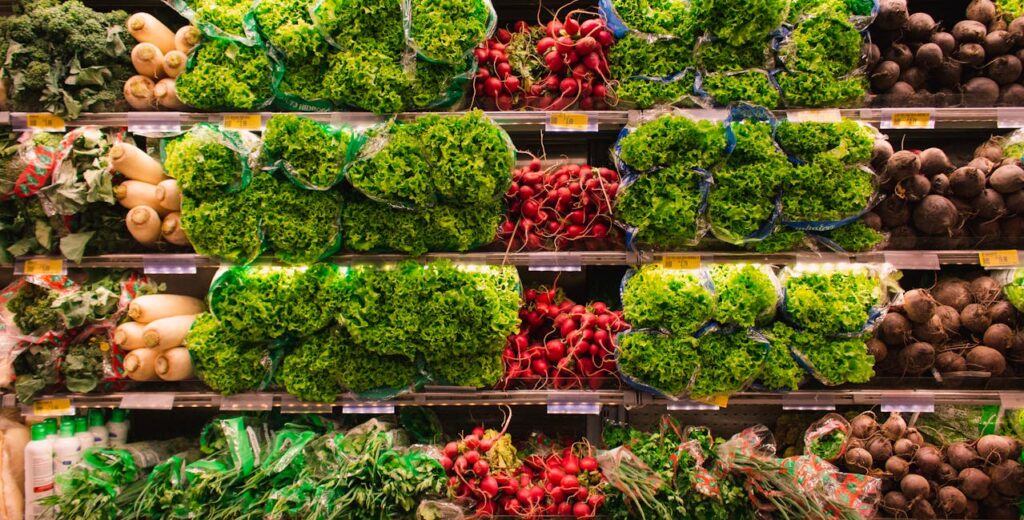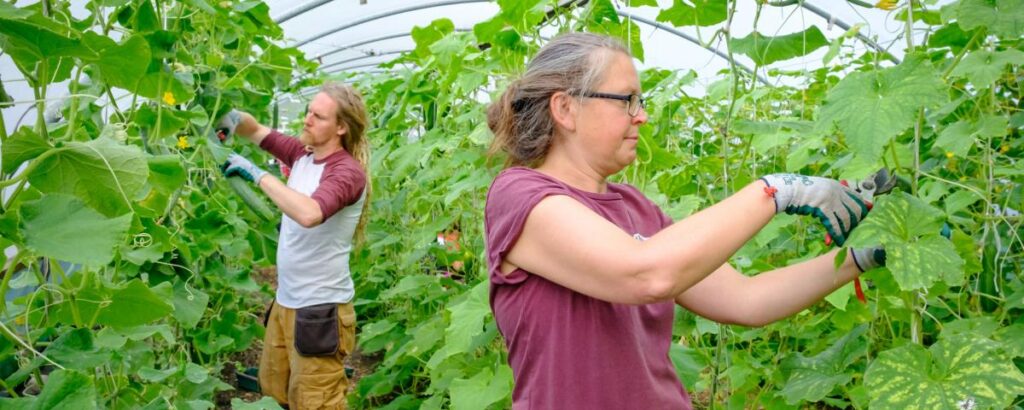This weekend, M&S’s Head of Food called on the government to set a legally binding target for the proportion of food sold in the UK to also have been grown in the UK. But where has this request come from, and is it the only way to make the food supply in your and our local supermarkets more sustainable?
As M&S’s spokesperson outlined in the Guardian article, Britain’s food supply is increasingly industrialised and international. This was perhaps most evident to Liverpool city residents during the COVID-19 pandemic, when supply chain issues resulted in empty shelves at city-centre supermarkets.
Since then, the disruption of Trump’s US tariffs and the wars in Gaza and Ukraine have contributed again to supply uncertainty. And then there’s the impact of climate change: Only last month, Waitrose reported that its supply of wheat, oilseed rape, and oats were having to be harvested weeks earlier than planned, due to this Summer’s droughts, meaning supply will be limited later in the Autumn.
An increased focus on British-grown food, then, is part of the solution, to make us all less dependent on these cheap but fragile global imports. We’re looking forward to hearing more about Britain’s place in the food ecosystem from UK food royalty Sheila Dillon (of BBC Radio 4, and the Food and Farming Awards) at our opening seminar on Thursday 2nd October. If you too would like to understand more about how the food you eat makes it onto your kitchen table, book your tickets here.
6pm Thursday 2nd October The Food System in the UK – how good is it?
Join our opening seminar of 2025, with local food producers, and a keynote from Sheila Dillon, BBC Radio 4 presenter The Food Programme and BBC Food and Farming Awards.
But home-grown food targets are only part of the solution. It’s not only where your food is grown, but how it’s grown that matters.
M&S—which already sources 100% of some major product lines (like chicken, beef, and milk) from British producers—has now set a further target for 100% of its British-sourced produce to come from farms using regenerative practices.
Regenerative farming focuses on restoring and enhancing the health of the soil, biodiversity, and natural ecosystems, in the farming estate. It’s an approach close to the heart of Kindling Farm (based on our doorstep, in Prescot L35), which we’ll hear more about at our seminar on Thursday, 16th October, with Kindling Farm’s co-founders, Chris Walsh and Helen Woodcock. Book your tickets here.
6pm Thursday 16th October Farm to Fork – is our food journey sustainable?
Find out where your food comes from, and how everyone can get more involved at home, with local food producers, and a keynote from Chris Walsh and Helen Woodcock of Kindling Farm, Prescot L35.
Kindling Farm is an example of another form of ‘regeneration’ too – the reinvestment into local skills, through hands-on training and apprenticeships. Only last month, British dairy farmers warned that a shortage of workers—exacerbated by Brexit—was putting their supply chains under immense pressure. Building a world where young people in Britain see farming as a viable, sustainable career, is the only long-term solution. We can’t wait to hear Chris and Helen’s experience of involving local young people in The Kindling Trust.
If you’re interested in how we, as residents of the Liverpool City Region, can take part in a fairer, tastier, and more sustainable food system, then book your tickets for our October seminar series here.


